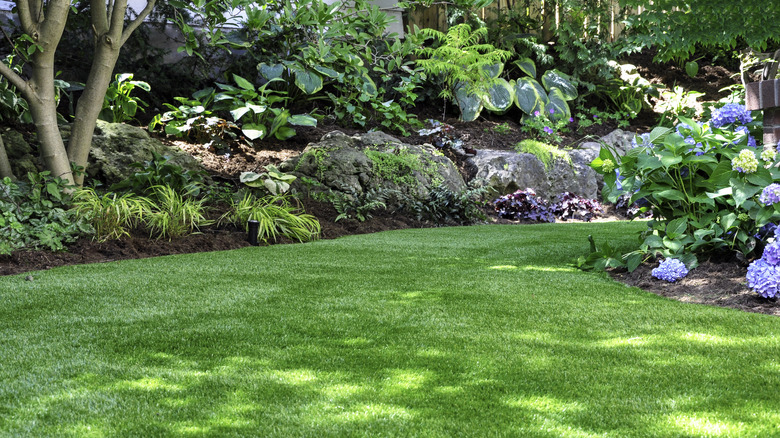The Pest-Resistant Grass That Will Help Your Lawn Thrive
When caring for your lawn, remember that a microscopic battleground is going on beneath your feet. This often results in various challenges, from pest control to resilience against weather extremes. But what if a single solution could simplify these challenges, addressing multiple issues at once? This is where endophyte-enhanced grasses like Titan Ultra and Titan Rx make a significant impact. Endophytes are microscopic fungi that exist symbiotically within the grass, offering a variety of benefits without causing any harm. Far from being a nuisance, these fungi act as a silent partner in lawn care, boosting the grass's natural defenses against common threats. They essentially serve as an internal security system and transform your lawn into a self-sustaining ecosystem.
Switching to endophyte-enhanced grasses isn't merely a cosmetic decision; it's a strategic choice if you want to create an environmentally friendly lawn that resists common pitfalls. Imagine not having to douse your yard in pesticides or constantly pull out weeds. Not only is this great for the environment, but it also makes your life as a gardener a lot easier. So, if you're dealing with common lawn challenges like persistent bugs, invasive weeds, or environmental stressors, endophyte-enhanced grasses may offer an integrated solution.
How endophyte-enhanced grasses work
So, you're intrigued by endophyte-enhanced grasses and what they can do for your lawn? In essence, endophytes create a biochemical defense system within the grass itself. Living inside the plant tissues, these fungi produce alkaloids, a class of organic compounds that are anything but welcoming to insect pests. For this reason, insects that chew on the grass are likely to move on, searching for a less distasteful meal elsewhere. This increased movement makes the insects more vulnerable, essentially turning them into easier targets for predators. Not just adult insects struggle with endophyte-enhanced grass; their younger forms, like larvae and nymphs, also find it hard to get the nutrients they need, often leading to starvation.
But that's not all. These grasses emit fewer compounds that typically attract insects. In simple terms, they're not just unappetizing; they're also less noticeable to bugs in the first place. Generally speaking, it's like having an invisible shield around your lawn. Now, this may sound like a one-trick pony, focusing solely on insect deterrence. But remember, fewer pests mean less disease and less need for chemical treatments, contributing to a healthier, more sustainable lawn overall. Furthermore, these grasses also bring several other advantages. For starters, they are champions when it comes to weathering tough conditions. Whether it's the scorching heat of summer or periods of low rainfall, they show improved drought tolerance. The endophytes help the plants conserve water, making your lawn more resilient.
Additional benefits and considerations
On the topic of weeds, endophyte-enhanced grasses have another card up their sleeve. Their robust health allows them to outcompete common weeds. A thick mat of healthy grass can choke out invaders before they even have a chance to annoy you. But it's not just about thwarting weeds. These grasses also have a higher resistance to diseases. Now, before you go all-in on this innovative lawn solution, let's talk precautions and planning. It's crucial to understand that not all endophytes are a match for all types of grass. Ensure you're selecting a compatible combination for your specific lawn conditions. Also, consider your geographical location when selecting your endophyte-enhanced grass. While they offer improved drought and heat tolerance, certain varieties are better suited for specific climate zones than others. Even within the realm of endophyte-enhanced options, local adaptation is key. Therefore, it pays to do some homework on which specific types are most suitable for your region.
Additionally, these grasses aren't a substitute for sound lawn care practices. Regular mowing at the right height, proper fertilization, and adequate irrigation are still part of the package for a top-notch lawn. Finally, don't forget the importance of soil preparation. Even the most endophyte-packed grass won't perform well if you plant it in poor soil. Test your soil's pH and nutrient levels before planting, and amend it as needed to provide the best possible foundation for your new, high-performing lawn.


